The ancient city of Ephesus, located in western Turkey, was one of the most important and prosperous cities in the ancient world and served as a major port and center of commerce, culture, and religion.
Today, Ephesus is one of the most well-preserved ancient cities in the world! It is a must-visit destination for history enthusiasts and travellers interested in exploring the ancient past. But even those with a casual interest in history will enjoy walking through these intricate and well-kept ruins.
This travel guide to help you make the most of your visit to Ephesus ruins:
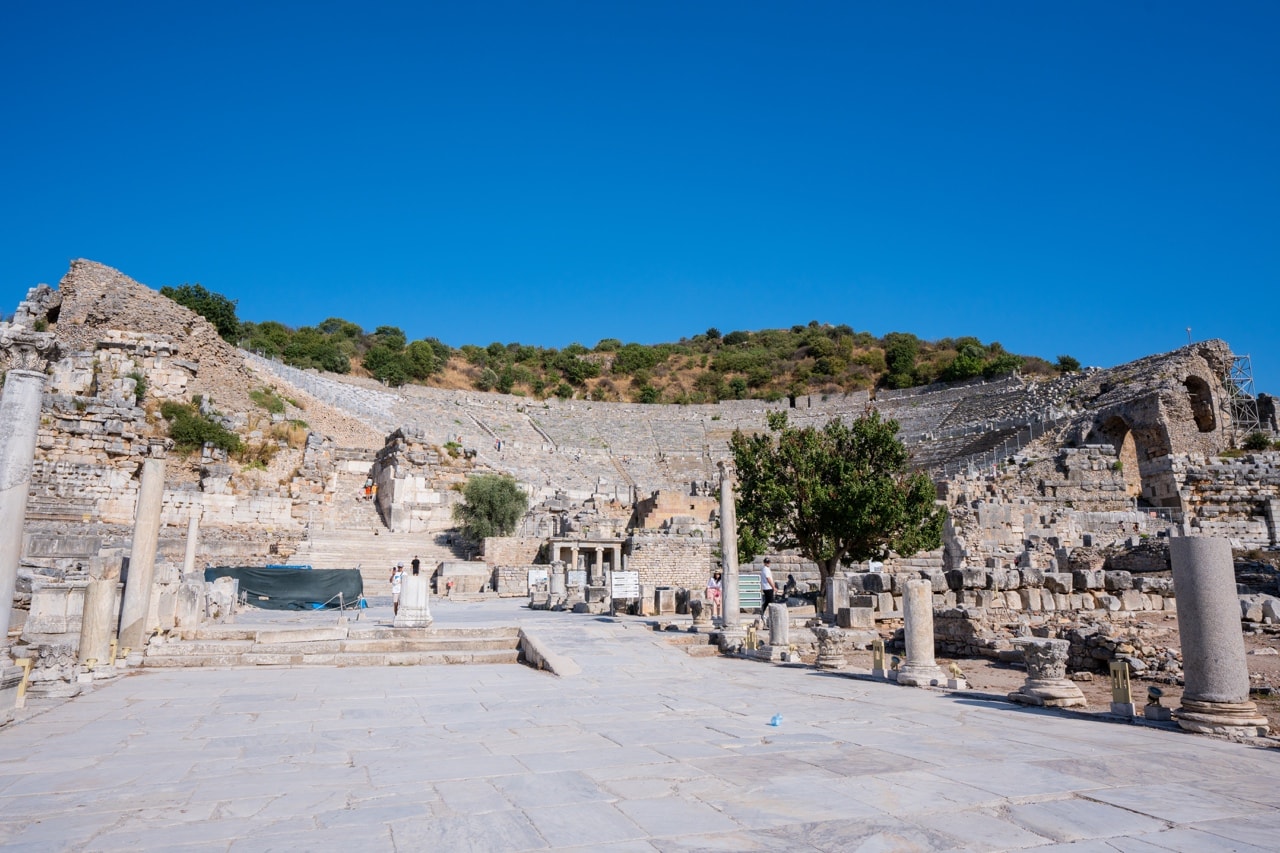
LOCATION
Ephesus is situated near the town of Selçuk, which is well-connected to major cities in Turkey. The nearest airport is Izmir Adnan Menderes Airport (ADB), and from there, you can take a taxi or use public transportation to reach Ephesus. Selçuk is also accessible by train and bus from various cities in Turkey.
If you’re travelling from Istanbul, there are day-trip tours available that will take you to visit Ephesus in a day. Or, if you want to get more out of your visit, you could opt for a 2-day tour that includes a trip to Pamukkale, or Cotton Castle.
ENTRANCE AND TICKETS
As of August 2023, tickets are 700 TL ($26 USD), and can be purchased at the ticket booths near the main entrance. Alternatively, you can join a tour group that will look after ticket purchases for you.
HOURS AND BEST TIME TO VISIT
Ephesus is open daily from 8am to 8pm (with the box office closing at 7pm). It is open year-round, but the best time to explore the ruins is during the spring (April to June) and autumn (September to November) when the weather is mild and pleasant. The site can get crowded during peak tourist seasons, so visiting early in the morning or late in the afternoon can help you avoid the crowds.
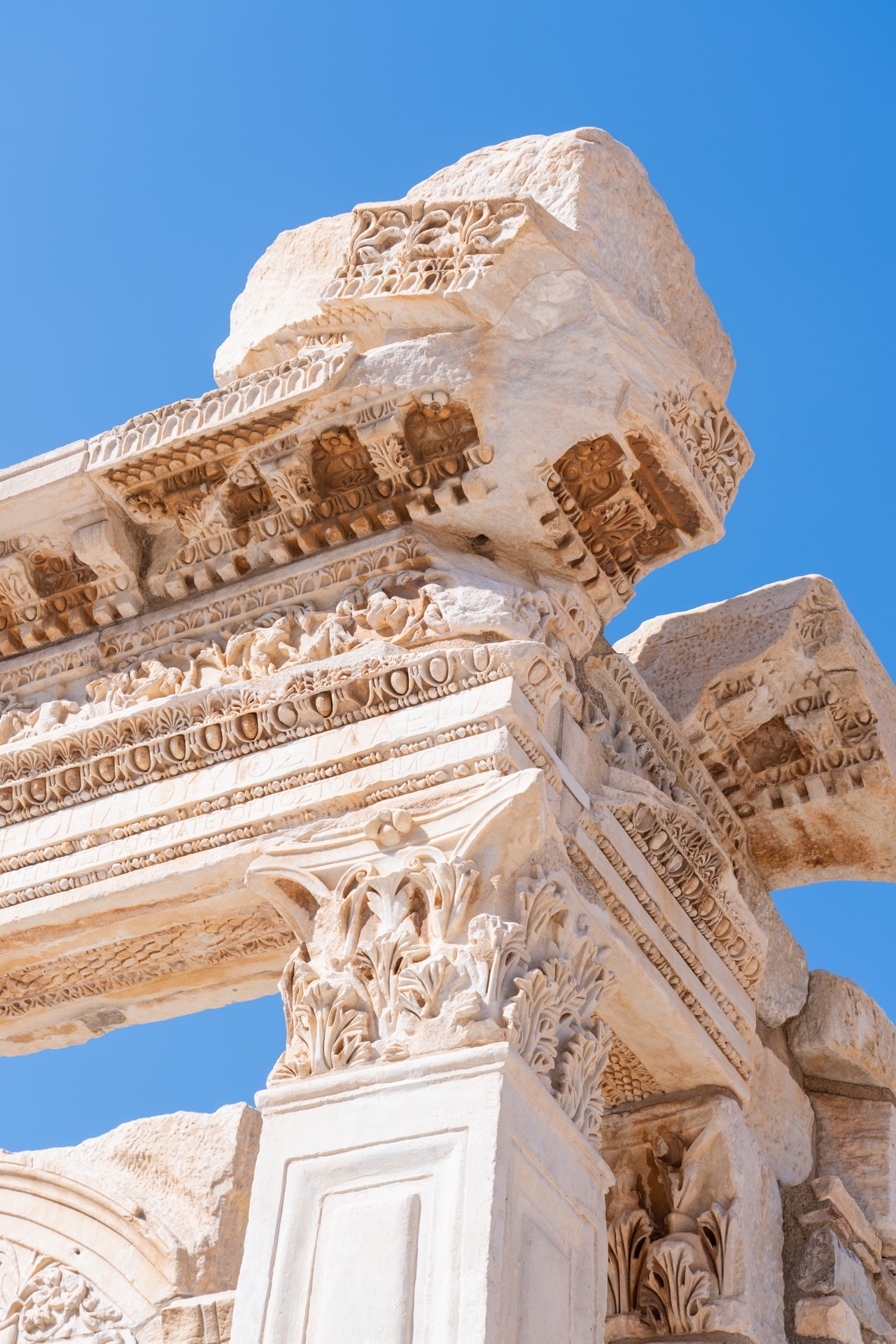
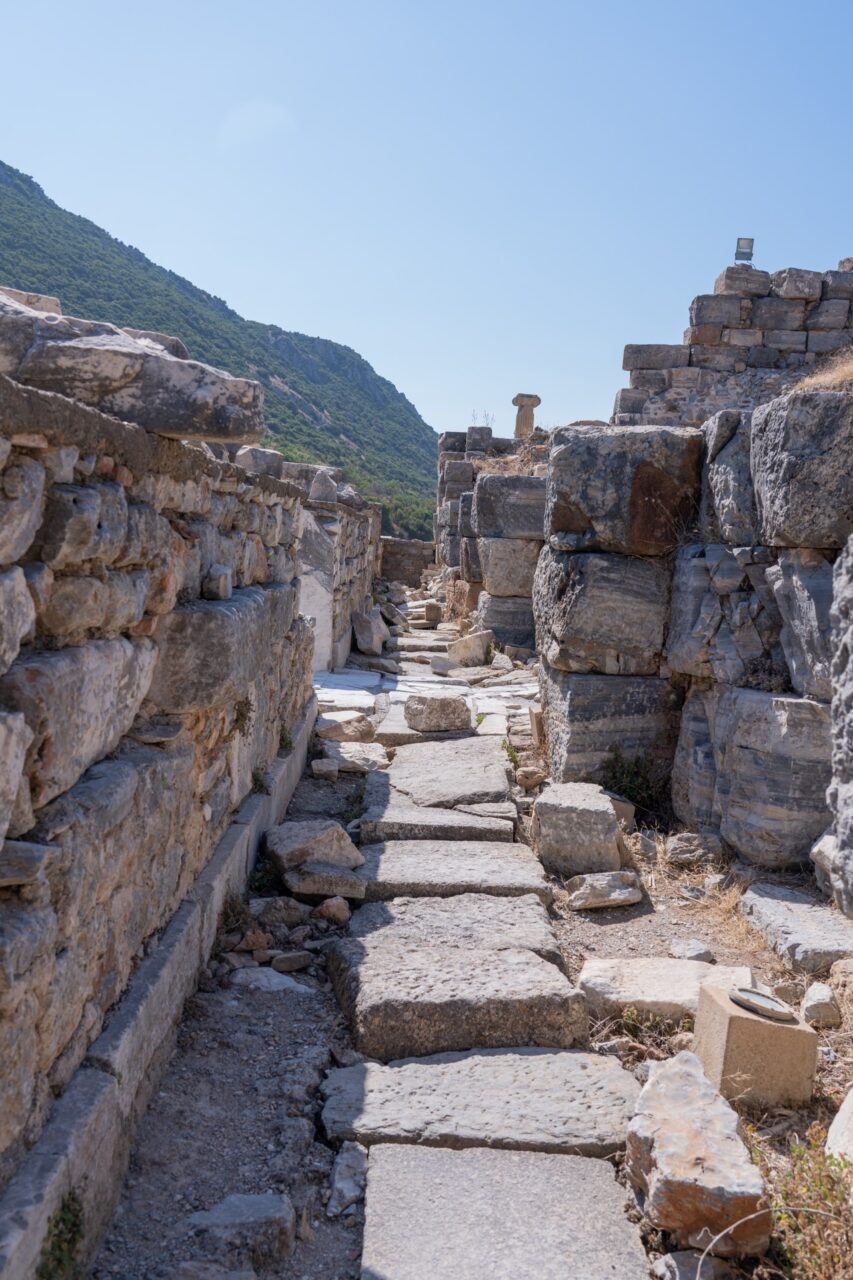
HISTORY OF EPHESUS
Ephesus was founded by the Ionian Greeks around the 10th century BCE and later became part of the Roman Empire. It played a crucial role in shaping the history of ancient Greece and Rome and was an important hub for trade and cultural exchange.
Ephesus also played a significant role in early Christianity. According to the Bible, the Apostle Paul visited the city and wrote the Epistle to the Ephesians. The city was also home to one of the Seven Churches of Revelation mentioned in the New Testament
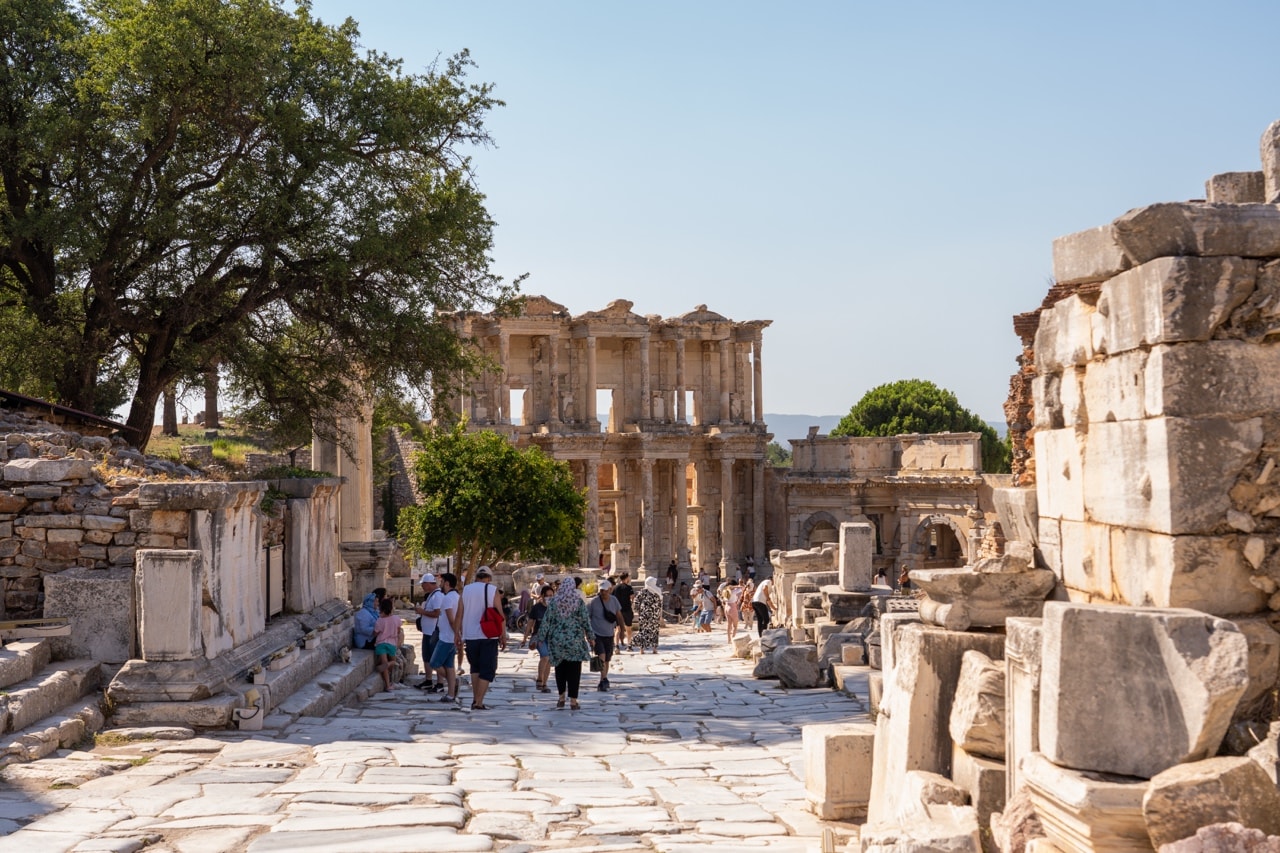
MUST SEE HIGHLIGHTS
Ephesus is vast, and there are several significant points of interest you should explore:
Celsus Library: This is one of the most iconic structures in Ephesus, and a stunning example of ancient Roman architecture. Built in the 2nd century CE, the Celsus Library was a monumental tomb and a library that housed thousands of scrolls. Its facade, adorned with elaborate carvings, remains an architectural marvel.
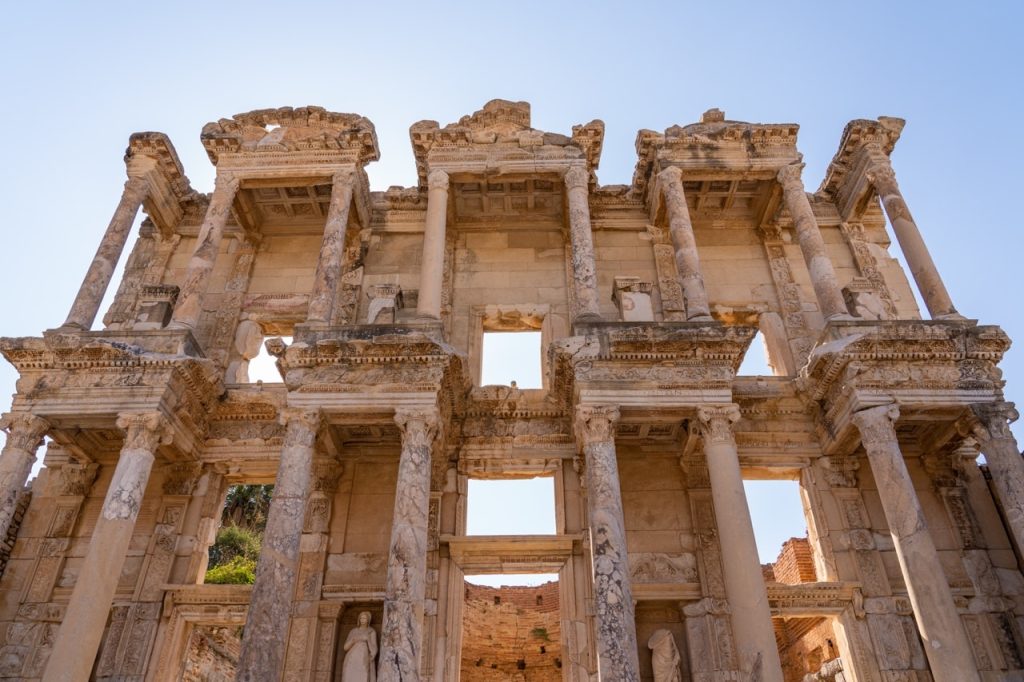

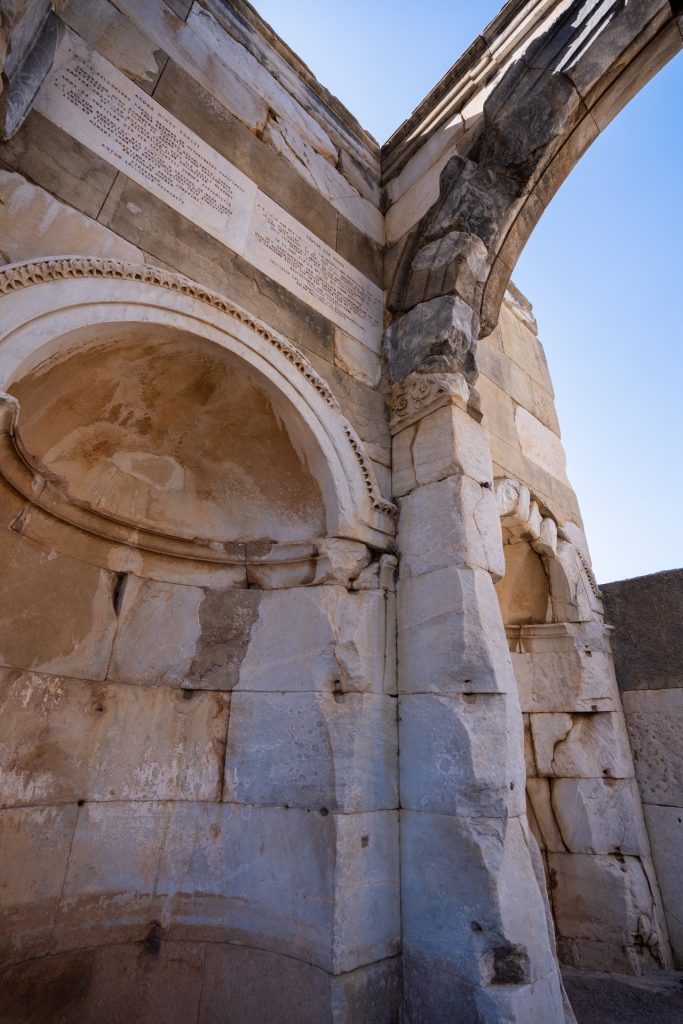
The Great Theater: This impressive amphitheater could hold up to 25,000 spectators and was used for various events, including theatrical performances, gladiator contests, and political assemblies. The Great Theater of Ephesus is one of the largest and best-preserved ancient theaters in the world today.
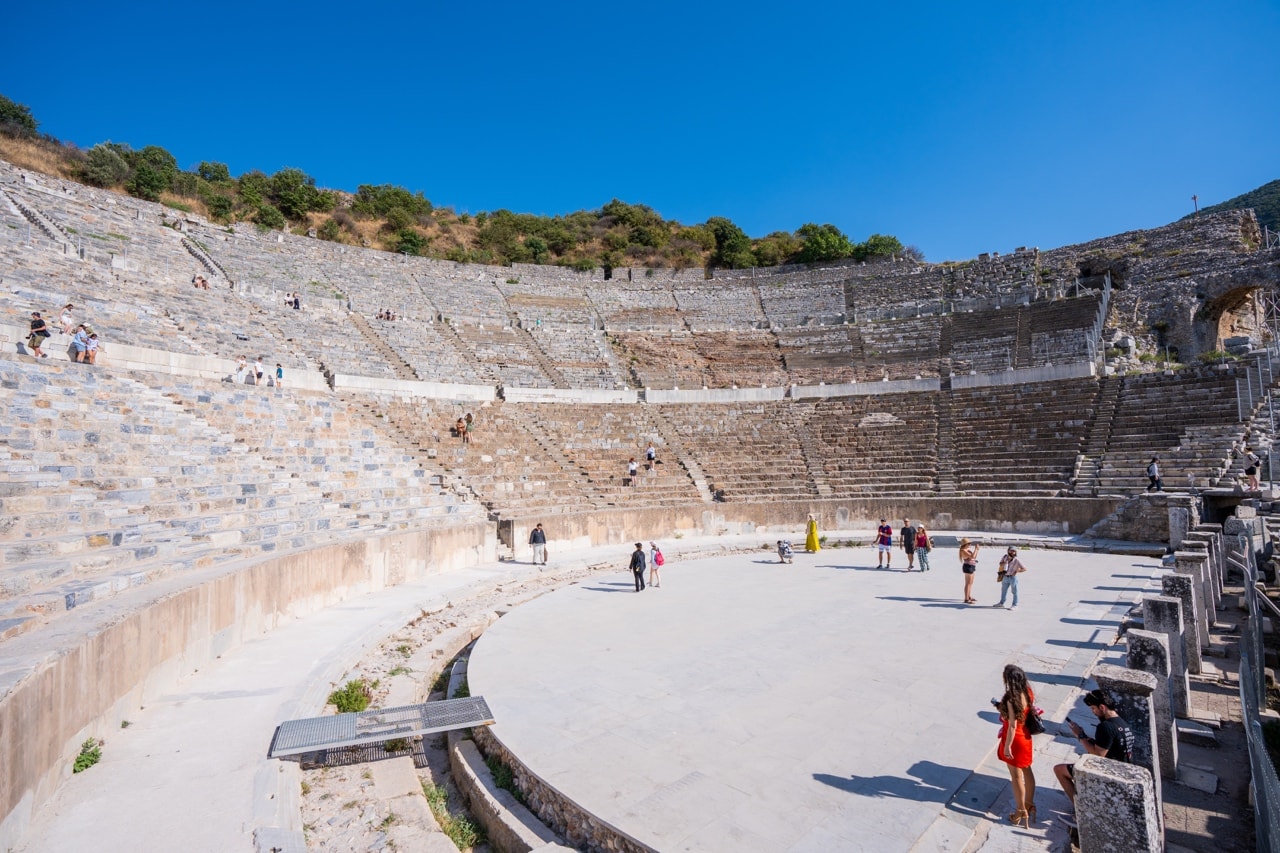
Agora: The ancient marketplace where commercial, political, and social activities took place.
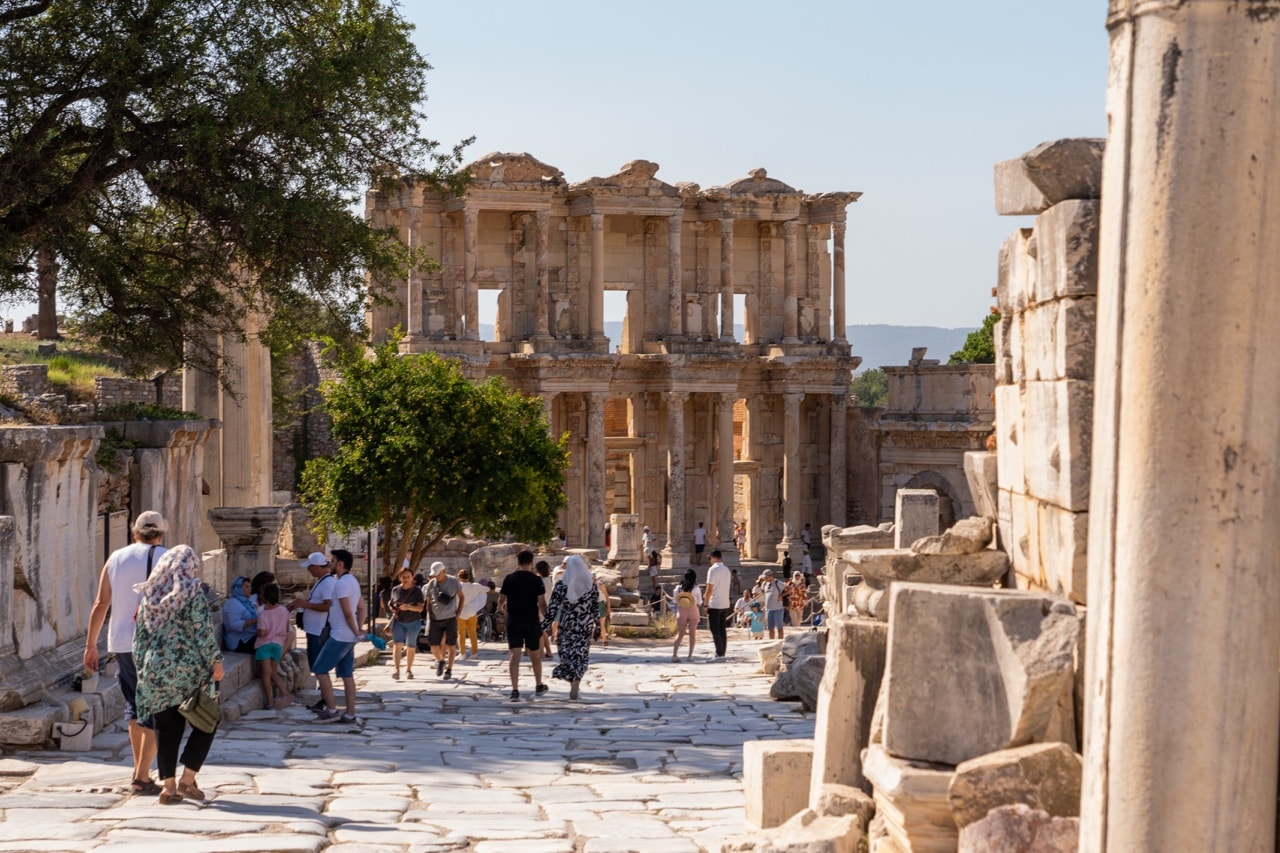
The Terrace Houses (Scholastica Baths): The Terrace Houses, also known as the “Houses of the Rich,” are well-preserved residential complexes that belonged to the wealthy residents of Ephesus. These houses offer a glimpse into the lifestyle and architecture of the ancient elite.
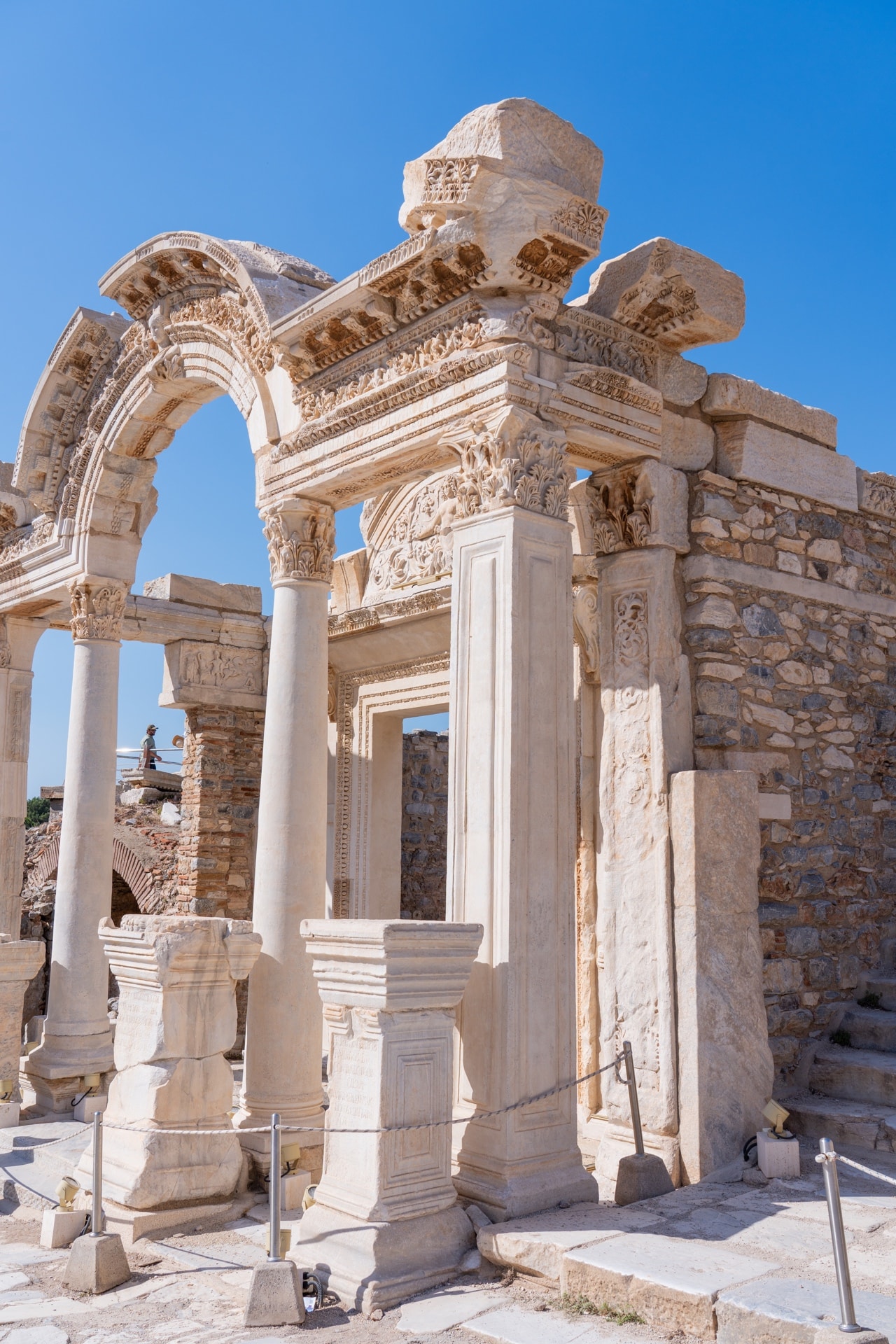

Temple of Artemis (Artemision): Although mostly in ruins today, this temple was one of the Seven Wonders of the Ancient World, dedicated to the Greek goddess Artemis.
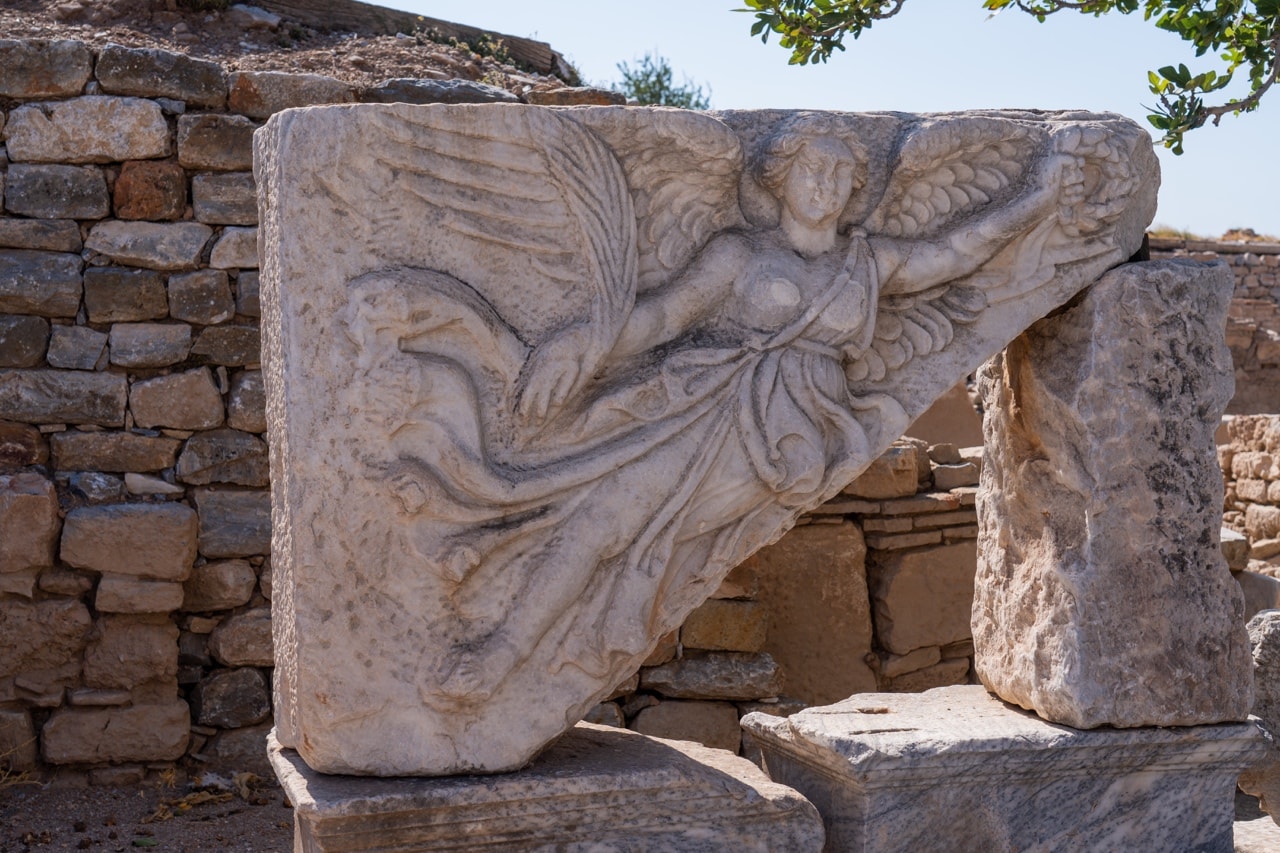
TIPS FOR VISITING EPHESUS
Wear Comfortable Clothing: Ephesus is an open-air archaeological site with uneven terrain. In many places the ground is very smooth marble, which can be extremely slippery. Wear comfortable (and grippy) shoes, and clothing suitable for walking and exploring.
Stay Hydrated and Bring Snacks: The site can get hot, especially during summer, so bring a water bottle and stay hydrated. Additionally, you may want to pack some snacks to keep your energy up during your visit.
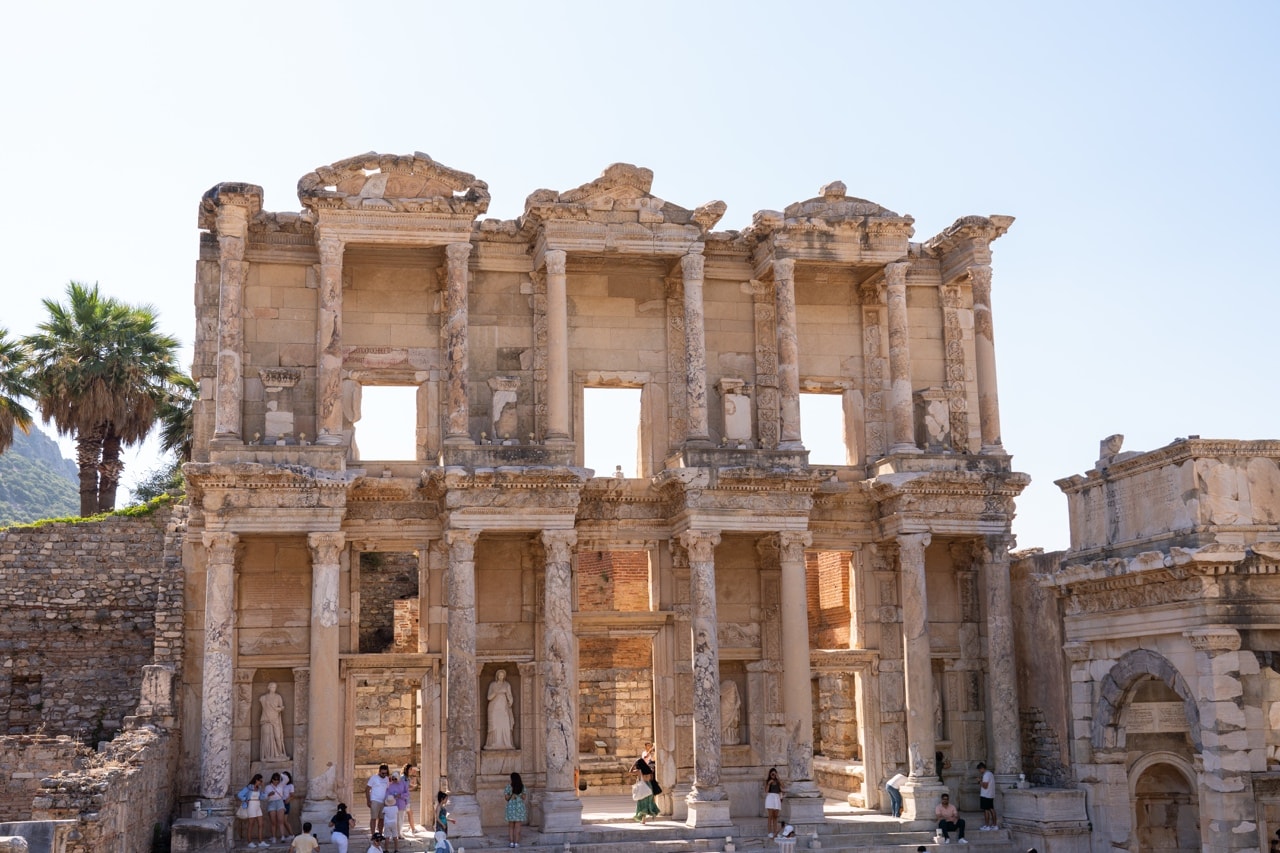
Respect the Historical Site: Ephesus is a UNESCO World Heritage site, so it’s essential to respect the ruins and not touch or climb on the ancient structures. As with any archaeological site, it’s essential to visit Ephesus with respect for its historical and cultural value. The preservation and conservation efforts undertaken by Turkish authorities have contributed to the site’s accessibility and educational value for travellers and history enthusiasts alike.
Nearby Attractions: Consider exploring other nearby attractions such as the House of the Virgin Mary, the Basilica of St. John believed to be the burial place of St. John, and the Ephesus Archaeological Museum.
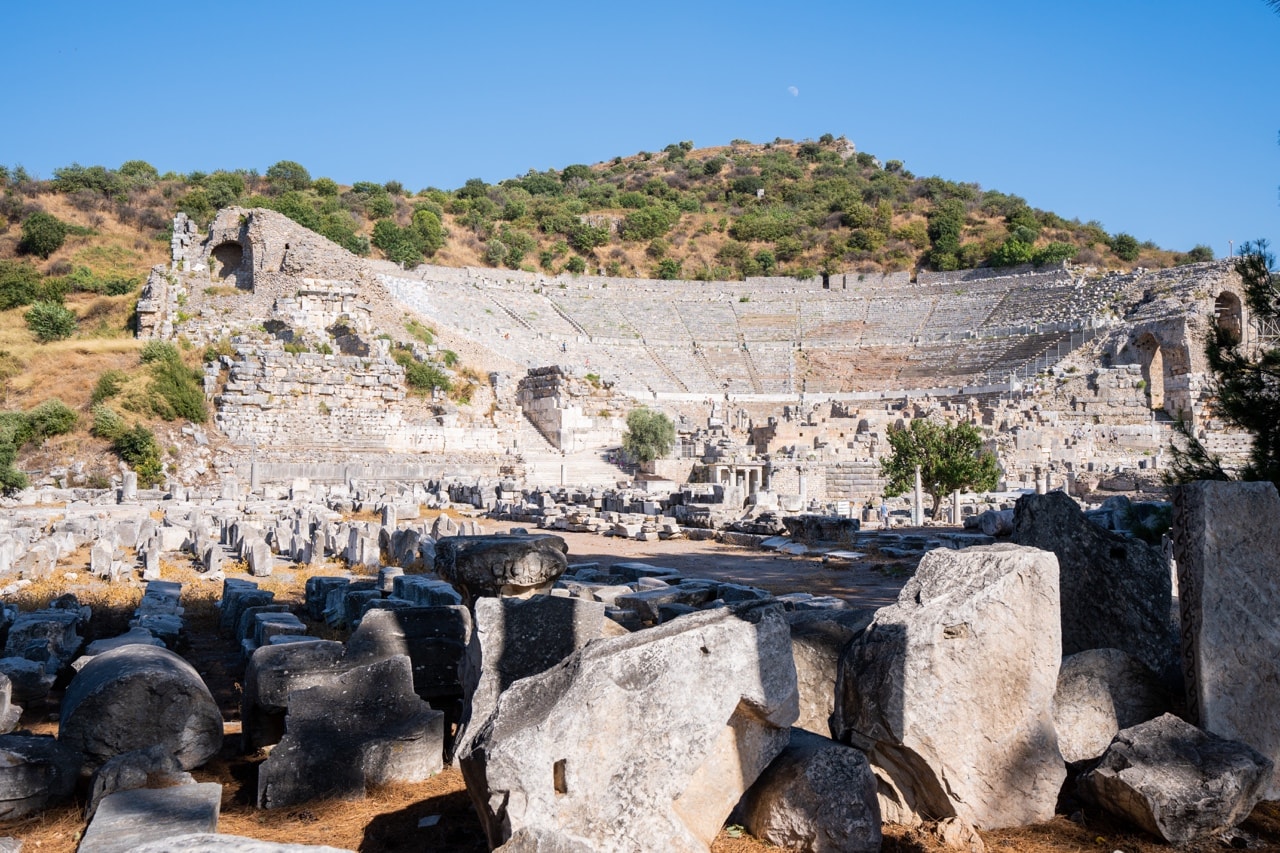
Exploring the ancient ruins of Ephesus is a truly unforgettable experience that will transport you back in time to the height of the Roman Empire. It was one of the most interesting and rewarding stops on our 10-day Turkey tour. We hope you enjoy it as much as we did!
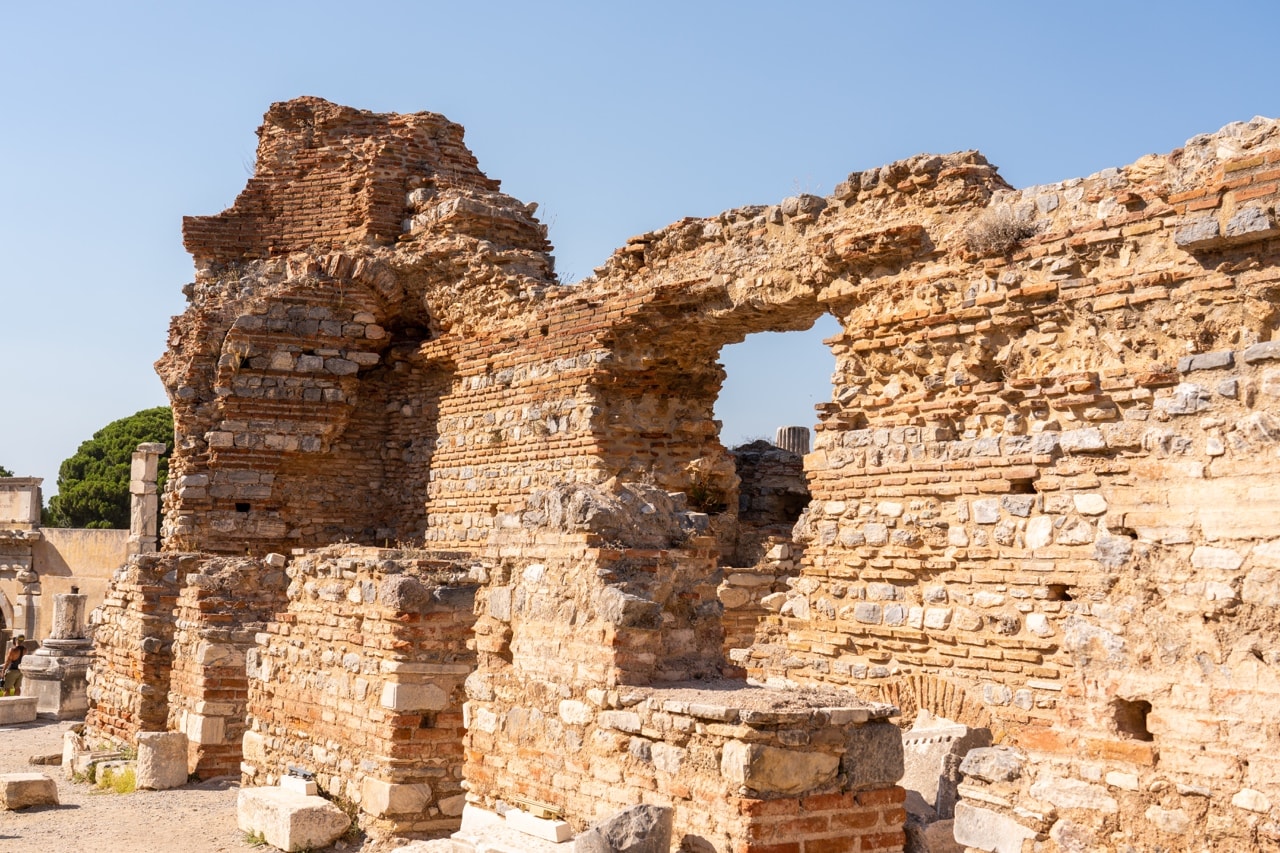
To check out our full Ephesus gallery, click here!
